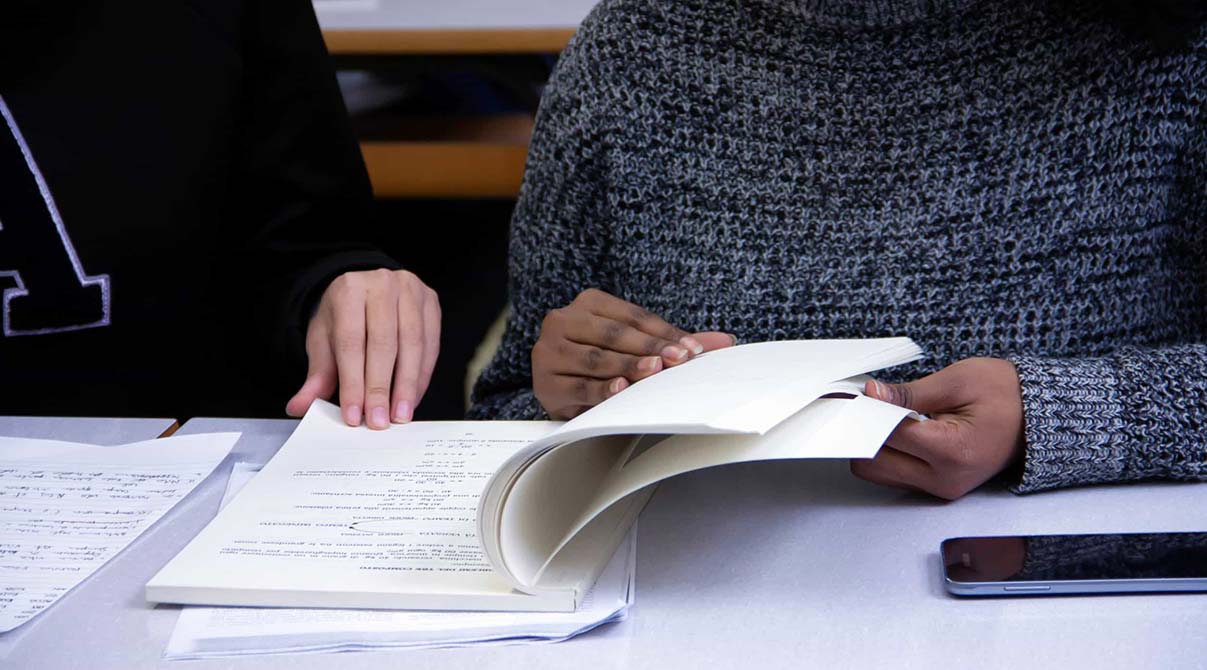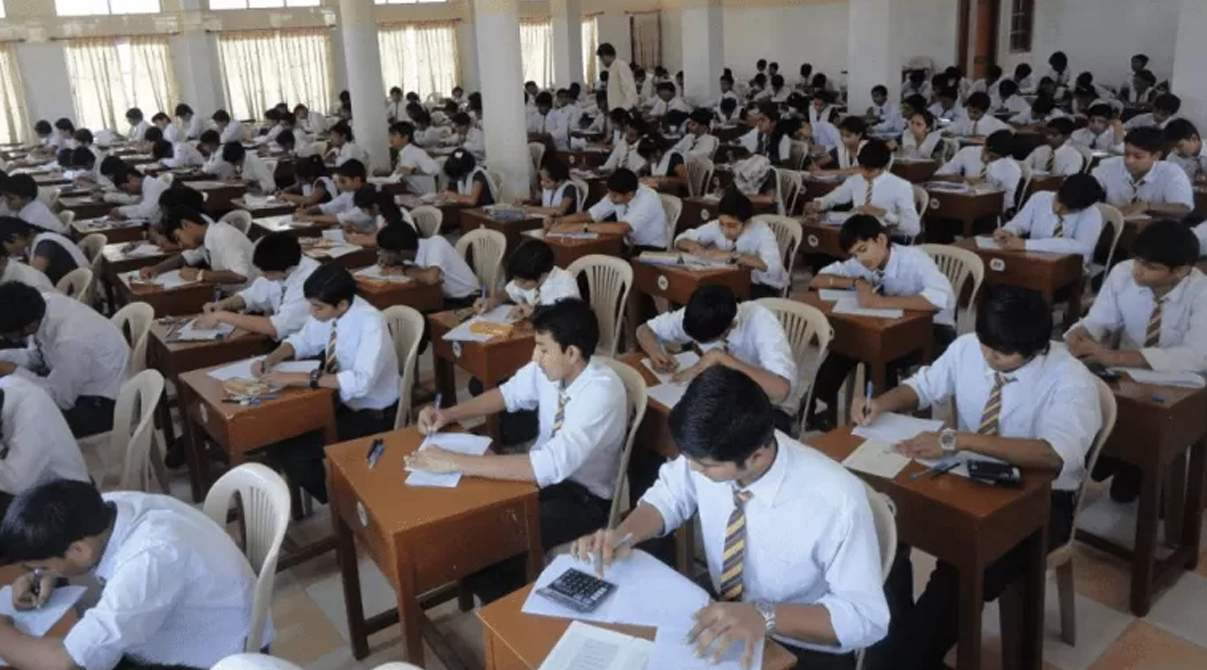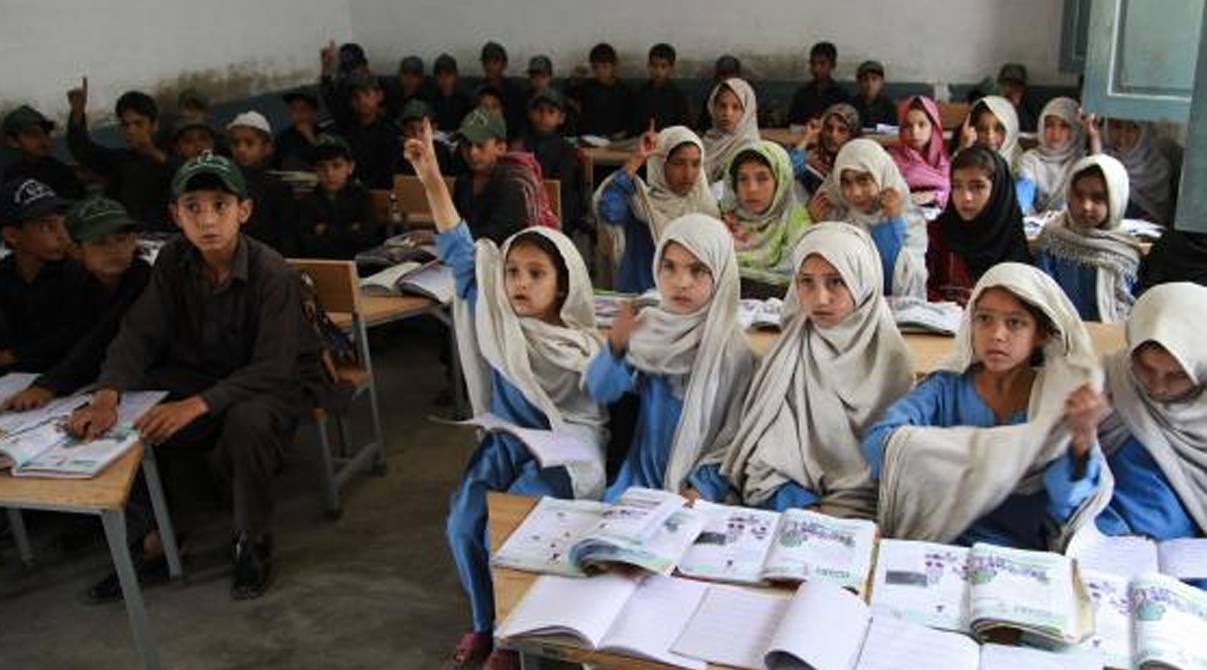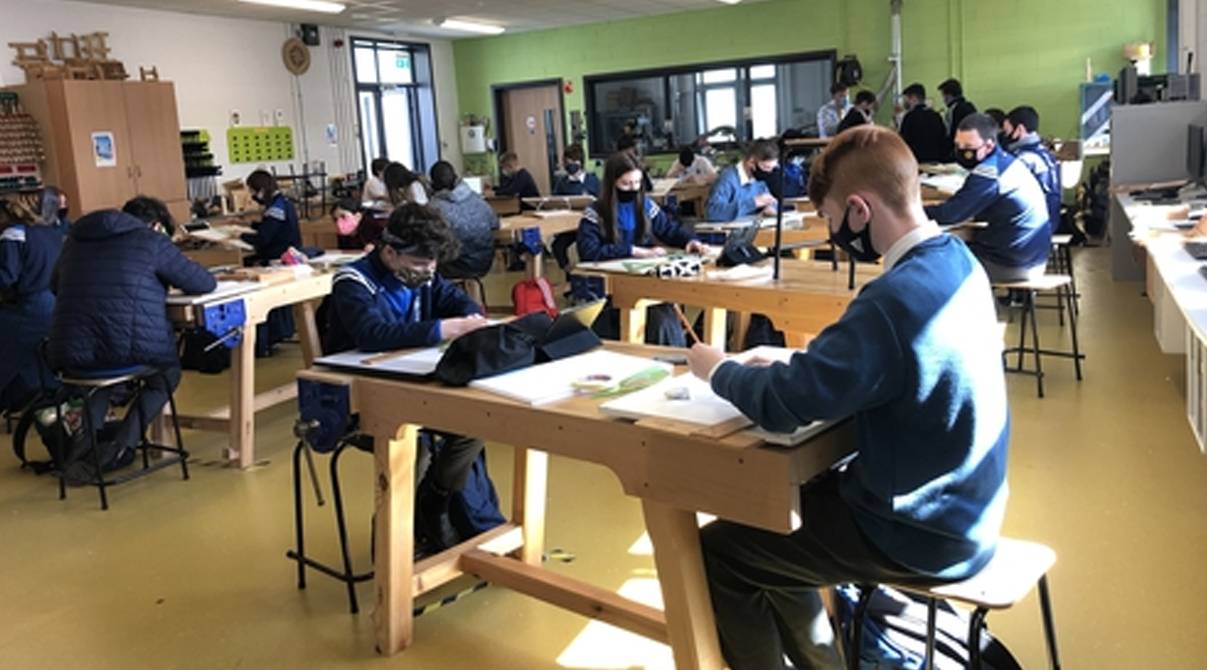The primary goal of education systems is to help students acquire the necessary knowledge, skills, and attitudes so they can become productive members of society. This includes providing access to quality teaching, resources, and support services such as libraries, laboratories, and guidance counselors. Education systems also provide an opportunity for students to learn about different cultures by exposing them to diversity in both their classrooms and communities. The ultimate aim is for all students to be able to reach their full potential regardless of where they come from or what language they speak.
A-levels (or Advanced Level), also known as General Certificate of Education Advanced Level qualifications, are academic qualifications in the United Kingdom, offered by Cambridge International Examinations. Students typically take after completing Secondary School. Learn more about A-levels in this article.
Pakistani Education System
The Pakistani Constitution requires that all youngsters between the ages of 5 and 16 receive free, compulsory education and that adult literacy increases. With the assistance of 1,535,461 teachers, the 260,903 institutions that makeup Pakistan’s educational system are able to accommodate 41,018,384 students. There are 80,057 private institutions and 180,846 governmental institutions in the system. As a result, 69% of educational institutions are public, while 31% are operating in the private sector.
The educational structure of Pakistan consists of 6 divisions. Elementary school (for 3-5 years old pupils), primary (class 1-5 pupils), middle (class 6-8), High-school (9-10, also called Secondary School Certificate or SSC), Intermediate (11-12, also known as Higher Secondary School Certificate or HSSC), and finally, university programs awarding Bachelor’s and Master’s degrees. All universities and institutions that give degrees are governed by the Higher Education Commission, which was formed in 2002. Atta-ur-Rahman served as the founding chairman after its establishment in 2002.
Currently, Pakistan’s education system is in dire need of reform. It is facing a number of challenges including overcrowded classrooms, a lack of resources, and inadequate funding. This has resulted in low educational standards and limited access to higher education for many Pakistanis. The government is, however, working to resolve these issues by initiating several reforms.
What are A-levels?
A-Levels are offered by various schools and universities to students aged 16 or older. Achieving an A-level qualification is a mark of excellence for any student, allowing them to pursue higher education options at some of the world’s best universities.
The A-level programme provides students with an opportunity to specialize in their chosen subject areas and develop skills that will prepare them for the next step in their educational journey. Students typically study three or four subjects at A-level, spending two years completing their studies before sitting the final exam. After successfully passing all exams, they receive a certification that universities around the world recognize and accept.
A-level qualifications enable students to pursue higher education in Pakistan. Students who have successfully completed these qualifications may choose to study for a Bachelor’s degree at a university or college in the country. These qualifications also provide pathways for those interested in pursuing their studies abroad, with many universities worldwide recognizing them as valid entry requirements for undergraduate courses.
A-levels qualifications can be used as alternatives to the GCSE qualification. These qualifications have enabled students in Pakistan to demonstrate their academic ability, in spite of not having English as their first language. Level qualifications generally take three years of study. These qualifications involve studying a range of subjects and completing a series of exams. A-level results are usually published in August each year.
A Levels provide Pakistani students with an opportunity to gain knowledge, develop skills and even get admission to universities abroad. As such, these qualifications remain extremely popular among Pakistani students who are looking for an alternative option to the GCSE equivalent.
What is the Difference between A-levels and O-levels?
A-levels and O-levels are two different educational qualifications that often the UK and other Commonwealth countries offer. 17 or 18 years old students typically take A-levels, or Advanced Level qualifications, at the end of their secondary education. On the other hand, O-level qualifications (or Ordinary Levels) were once a popular level of examination for students of age 16 or 17, but now GCSEs have replaced them.
The main difference between these two types of qualifications is the scope of the study. While A-levels require pupils to study a broad range of topics from a variety of disciplines, O-level examinations focus on specific areas such as the English language, mathematics, and sciences. Additionally, A-level courses usually involve more in-depth research than O-Levels do.
When to Take A-levels in Pakistan?
The answer to this question varies depending on the student’s educational background and individual career aspirations. Generally speaking, A-level courses are available for students who have completed their O-Levels or an equivalent qualification at a Pakistani school. These courses usually run for two years and include a variety of subjects, such as English language, mathematics, physics, and chemistry. They are designed to prepare students for university entrance exams and careers in fields such as engineering or medicine.
Students may also be able to take A-levels through exceptional circumstances if they were unable to attend traditional schooling due to personal reasons.
When it comes to deciding to take A-levels in Pakistan, there are a few things to consider. Firstly, prospective students should think about their current qualifications and educational background. If they have already completed the equivalent of 11th grade in Pakistan, then taking A-levels should be their next logical step.
Secondly, individuals must consider how much time they can dedicate to studying. This is because A-level courses require a significant amount of commitment and focus if one wishes to achieve good results; therefore, those who are not able to commit sufficient time should look at alternative study options instead. Lastly, prospective students should also consider their future plans; if they know that they want to progress onto university-level education after completing A-levels then this is a great choice for them.
Benefits of A-Levels Qualifications for Pakistani Students
For Pakistani students, the benefits of an A-Levels qualification are vast. As a globally recognised secondary school qualification, A-Levels are seen as a golden ticket to higher education and employment opportunities around the world. With this in mind, it is important for Pakistani students to understand how they can benefit from having achieved an A-Levels qualification.
Flexible and Open
A Levels has many advantages that make it an attractive choice, especially when compared to other qualifications such as the Higher Secondary School Certificate (HSSC). One of the key benefits of A-Levels qualification is its flexibility, which allows students to progress at their own pace while still being able to keep up with their studies.
Freedom of Subject Selection
Students can choose from any number of subjects offered by A Level providers, allowing them to tailor their studies to their preferences and strengths. This gives Pakistani students more control over their academic careers, allowing them to focus on topics they are passionate about and excel in with greater ease than other qualifications would allow. Furthermore, this freedom encourages critical thinking and creative problem-solving skills which will benefit students in later life regardless of what field they go into.
Experience Development
These qualifications provide a structure and structure-based learning which is beneficial in helping students develop their knowledge base, as well as skills such as research, problem-solving and critical thinking. This type of learning is invaluable in preparing students for real-life scenarios, giving them the confidence and competency to achieve success during their studies and beyond.
Related: Top 10 Pakistani Startups in Education
Global Recognition
Universities around the world widely recognize and accept A-Levels qualifications, making them an excellent choice for Pakistani students who want to pursue higher education or employment abroad. A Levels offer a range of benefits and opportunities that can help Pakistani students gain global recognition.
Opportunities for Study Progression Outside
A Levels qualifications are a popular choice for Pakistani students looking to expand their academic horizons and future opportunities. Worldwide universities recognize this qualification as an acceptable entry requirement, providing students with the opportunity to study abroad and gain diverse knowledge from other countries educational systems.
Job Development
Gaining an A-Levels qualification provides students with the necessary skills and knowledge required to pursue higher learning. This can give them the foundation needed to explore their desired academic field and develop more specialized skills that could be beneficial in their professional life after university. Secondly, having an A-Levels qualification can often serve as a benchmark of a student’s performance by employers; making it easier for Pakistani graduates to secure well-paid jobs in competitive industries such as banking, finance, IT, and engineering after graduation.
Subjects & Academic Options
A-Levels are the most advanced qualification and are normally for students aged 16 to 18. The qualification takes typically a duration of two years and covers a range of subject areas such as Maths, Science, and English. Following is the list of subjects A levels offer:
- Accounting – 9706
- Afrikaans – 9679
- Arabic – 9680
- Art & Design – 9479
- Biblical Studies (9484) New
- Biology – 9700
- Business (9609)
- Chemistry – 9701
- Chinese – Language & Literature – 9868 New
- Chinese – 9715
- Classical Studies – 9274
- Computer Science – 9618
- Design & Technology – 9705
- Design & Textiles – 9631
- Digital Media & Design – 9481
- Divinity – 9011
- Drama – 9482
- Economics – 9708
- English – Literature – 9695
- English Language – 9093
- French – 9716
- French Language & Literature – 9898
- Geography – 9696
- German – 9897
- German – 9717
- Global Perspectives & Research – 9239
- Hindi – 9687
- Hinduism – 9487
- History – 9489
- Information Technology – 9626
- Islamic Studies – 9488
- Law – 9084
- Marine Science – 9693
- Mathematics – 9709
- Mathematics – Further – 9231
- Media Studies – 9607
- Music – 9483
- Physical Education – 9396
- Physics – 9702
- Portuguese – 9718
- Psychology – 9990
- Sociology – 9699
- Spanish – First Language (AS Level only) – 8665
- Spanish – Language & Literature – 9844 New
- Spanish – 9719
- Tamil – 9689
- Thinking Skills – 9694
- Travel & Tourism – 9395
- Urdu – Pakistan only – 9686
- Urdu – 9676
Structure of Pakistani Education System – Boards and Exams
Along with the Foreign Baccalaureate and other international tests like the Advanced Placement, A Levels are provided in Pakistan by non-governmental, private institutions. The programme is equivalent to the Higher Secondary School Certificate, and worldwide British boards administer these exams. Cram Schools have sprung all over the nation to enable students to sit for exams as private candidates.
CIE and Pearson Edexcel conducts the A-Levels examinations in Pakistan.
Cambridge International Examinations (CIE)
Cambridge International Examinations (CIE) offers the A-level qualification. In Pakistan, tens of thousands of students take CIE examinations every year in pursuit of their higher education dreams. CIE is an internationally recognised, academically rigorous, and highly respected educational provider. It offers a range of qualifications to students in Pakistan, which are accepted and recognised by universities around the world. CIE is the leading international provider of qualifications in Pakistan, ensuring that students have access to quality education and training while they progress through their studies.
Pakistan has been offering Cambridge International Examinations since 1999, making it one of the longest-standing countries within CIE’s network of over 160 countries worldwide. Over the years it has developed into a well-known center for excellence in learning, with thousands of Pakistani students across all age ranges successfully completing qualifications from Cambridge International Exams each year.
Colleges in the USA, the UK, Australia, Canada, Germany, and other nations value and accept Cambridge credentials. Pupils who perform well in precisely designed Cambridge International A-Level subjects may receive roughly to a full year’s worth of academic credits from institutions in the United States and Canada.
Over 850 foreign schools, including all Ivy League and Ivy Plus colleges in the United States officially recognise the Cambridge International A Levels. Yale, Stanford, MIT, and Harvard are some of these institutions. Cambridge qualifications are presently recognised by numerous American universities during the admission procedure. Cambridge qualifications are recognised by all UK universities.
Related: IDP Study Abroad Education Expo for Students
Pearson Edexcel
Pearson Edexcel conducts A-levels examinations in Pakistan. Other academic certifications offered by Pearson besides Edexcel A levels include Edexcel GCSE and Edexcel International GCSE. It also offers the Edexcel Certificate (International GCSE for UK public schools).
To deliver a fusion of knowledge, curricula, evaluation, training, and innovative technologies to make learning more interesting and successful. Pearson brings together top names in education. It is one of the largest awarding bodies in the UK. Ofqual in England, SQA in Scotland, CCEA in Northern Ireland, and Qualifications Wales in Wales govern this body. It provides academic and vocational credentials that are benchmarked internationally, with Edexcel, BTEC, EDI, and LCCI serving as examples of quality education.
To ensure the upholding of the high standards throughout all of its certificates. It collaborates with leaders and professionals in the education field. A significant component of Pearson Education Limited’s dedication to these standards is the Board, the World Class Qualifications Expert Panel, and the Qualifications and Standards Committee.
Assessment & Grading Method
Assessments and grading methods for the A levels in Pakistan vary from school to school. Thus, making it important for students to be aware of their institution’s system. The assessment and grading method followed in most Pakistani schools is the Cambridge International Examinations (CIE) system. This includes a variety of assessments like coursework, practical work, projects, and written tests. Each assessment contributes towards the final grade with different weightings assigned to each type of assessment depending on the subject taken.
In addition to coursework and examinations. CIE has a policy that requires all candidates to demonstrate certain skills outside of academic performance. These may include leadership ability or teamwork proficiency. Institutions also use additional criteria when assessing candidates such as Written English (WE) or Oral English (OE). WE assess candidates’ writing abilities while OE assesses their speaking abilities in an interview setting.
Support & Available Resources
A-Levels are a popular choice for high school students in Pakistan. This rigorous qualification is accepted by universities and employers around the world. Hence, making it an attractive option for those looking to pursue a higher education or career abroad. However, when considering taking A Levels in Pakistan, it’s important to consider the support and available resources that will be available during your studies.
In preparation for taking on an A-Level course. Many good schools offer additional support such as guidance counselors, study groups, and one-on-one tutoring sessions. These can help identify weaknesses in topics you’ll need to focus on before starting your coursework. They can even provide helpful advice that may give you an edge over other candidates. Furthermore, there are plenty of online resources providing lecture notes and practice exams to hone your skills – many of which are free and accessible from anywhere with internet access.
Challenges & Issues Faced by A-Levels Students in Pakistan
A-Levels Students in Pakistan have to face a number of challenges and issues. Despite the fact that A-Level qualifications are highly sought after. Many students find themselves struggling with obstacles along their academic journey.
The most common challenge faced by A-Levels students is the pressure of completing coursework within a tight deadline. Many teachers assign large amounts of work to be completed in a short amount of time. It causes students to feel overwhelmed and unable to keep up with their studies. This can lead to increased stress levels, fatigue, and burnout which can often result in poor grades or even dropping out of school altogether.
Another issue faced by A-Levels students is the lack of resources available for them to complete their work effectively. Many schools do not provide adequate guidance for these courses or the necessary materials needed for success such as textbooks and online tutorials. For this, students have to search and study on their own, find resources in online libraries, and form their own study groups.
Lastly, due to limited funding allocated to educational institutions in Pakistan. It can be difficult for A-Levels students to find teachers who are qualified enough and have the adequate expertise needed for teaching these courses at a higher level.
Improvements Needed to Tackle these Issues
To help A-levels students achieve their academic goals without going through so much stress, certain improvements need to be made.
The first recommendation is to provide better support systems for these students. Mentors, counselors, teachers and parents should all work together in order to provide guidance and support for the students who are struggling against the clock. Furthermore, universities should introduce more flexible timelines when it comes to assessments. So that students have enough time to thoroughly complete their assignments without having to rush through them.
Secondly, better accessibility of resources for A-Levels students in Pakistan is required. By providing them with online learning materials such as video tutorials and practice tests. They can get the help they need quickly and conveniently. This will also give them access to more diverse study materials than what is available in local bookstores.
Lastly, proper guidance should be given to A-Levels students regarding exam preparation and career choices. Students should be assisted by qualified faculty members or mentors. As they provide advice on how best to prepare for the exams and options available after completion of A-Level examinations.
Related: What the Future of Digital Education in Pakistan Looks Like?
Conclusion
The Pakistani education system works differently for A-level students than traditional methods of schooling. For example, in A-level schools, students are given greater autonomy over their learning. It allows them to choose courses that suit their interests and strengths. This allows them to focus on the topics they find the most interesting and beneficial to their future plans.
Good A-level schools in Pakistan also offer support systems such as student counseling and mentorship programs. They can help students in developing the communication skills required for university admission tests or job interviews. Furthermore, these schools often have strong links with universities across Pakistan allowing students access to opportunities outside of school.
In conclusion, the Pakistani Education System offers A-Level Students an opportunity to develop knowledge in areas of interest. While accessing resources necessary for success at higher levels of education or career paths.





